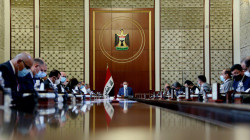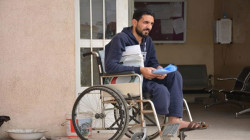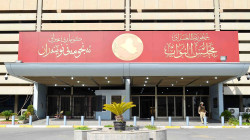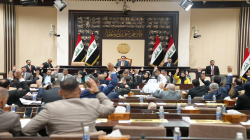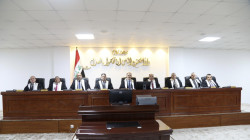Beyond "Innocent People": unpacking Iraq's New Amnesty Law
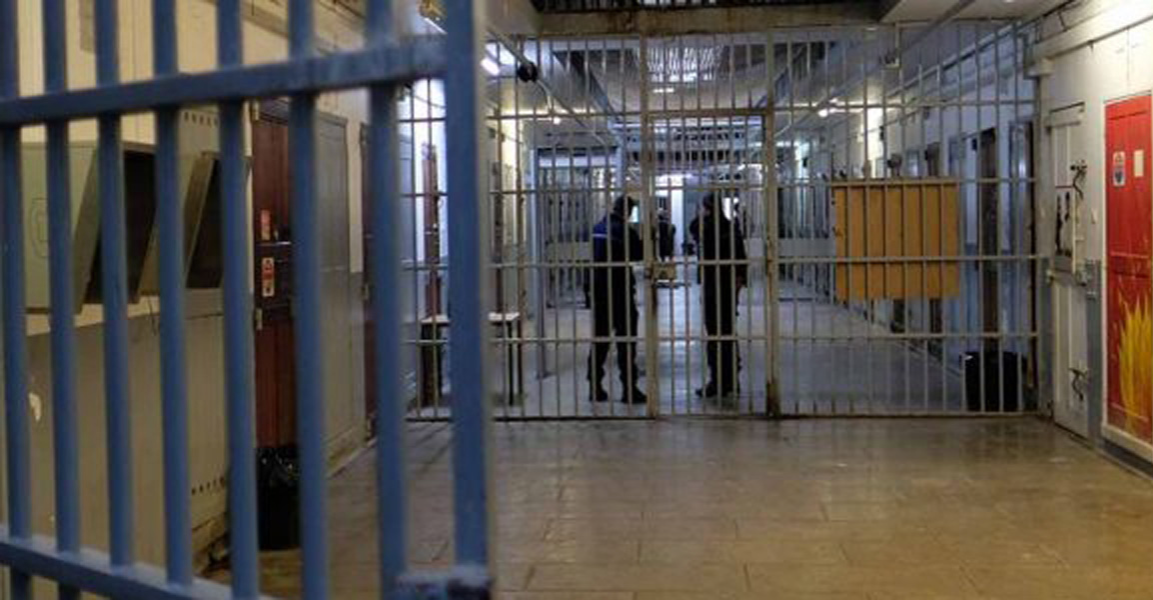
Shafaq News/ Four months after the "second reading" of the draft of the second amendment to the General Amnesty Law, the Iraqi Parliament voted to approve it "in one basket" alongside the Personal Status Law proposal and the Restitution Law. The session witnessed heated debate and chaos within the parliament chamber.
The approval of the Amnesty Law, on Tuesday, was welcomed by Sunni blocs in the parliament, which had repeatedly called for its passage over several months, citing the presence of "many innocent people" in prisons, in addition to detainees whose cases were controversial due to the nature of the charges against them, which they described as "malicious."
However, some Shiite factions oppose the law, fearing the release of detainees accused of terrorism-related offenses, amid protests from several MPs about the voting process that led to the approval of the three controversial laws.
Disputes over Voting Process
Deputy Chairman of the Legal Committee in the Iraqi Parliament, Mortada Al-Saedi, stated that "the Amnesty Law, from a legal perspective, is complete, but it remains a subject of disagreement. The previous law of 2016 was implemented, with amendments regarding the definition of terrorism and the inclusion of individuals based on a secret informant or a single witness recognized for amnesty."
Al-Saedi further explained to Shafaq News that the tenth clause, which stipulates the full reimbursement of amounts (for embezzlers and thieves), was part of the 2016 law, but an additional clause was added stating that such individuals cannot establish a party or be appointed to a government position at the level of a department head or higher. "This is the essence of the amendment, while the remaining provisions are identical to those in the 2016 law," he said.
On the other hand, MP Susan Mansour from the Kurdistan National Union bloc expressed her dissatisfaction with voting on the laws in one package, stating, "We had hoped that each law would be voted on separately in yesterday’s session, with unanimous approval and conviction of their importance."
Mansour clarified that her bloc didn’t oppose the general amnesty, but stood against the release of certain criminals, emphasizing the need to form committees correctly, especially in light of current regional circumstances.
As a result, there were calls to dismiss the Speaker of Parliament and challenge the vote by several MPs.
Some MPs claimed that Speaker Mahmoud Al-Mashhadani did not read the Amnesty Law during the session, but merely read the justification for it, and they were not fully informed about its details. They believed that he announced the passage of the law along with the laws on properties and personal status as a package.
After the session, many MPs gathered signatures to dismiss Al-Mashhadani, objecting to the voting procedure, with some revealing that the vote took place without MPs raising their hands.
Media Stunts?
In this context, political analyst Diya Al-Duraji revealed that the three laws were passed in one deal agreed upon before the session, and "the Speaker of Parliament had the green light from everyone to announce approval without counting the votes."
In an interview with Shafaq News, Al-Duraji described the objections and statements either in support or rejection of the laws as "media stunts and electoral propaganda, aimed at winning the hearts of supporters, depending on whether the person was opposing or supporting the law, according to the specifics of each law."
Regarding the general amnesty law, the political analyst stressed that it was "not a mass prison release like the former regime used to do before 2003; it is a single law, not implemented in stages as some have promoted," criticizing certain press statements. "The intention seems to mislead about the law, suggesting that other categories will be included in a later stage, which is not true," he added.
Al-Duraji emphasized that "every clause in the law has conditions that must be met before releasing a prisoner," such as the first-time drug offenders, and that prisoners who were imprisoned due to "secret informants" would be reassessed by a legal committee. "If proven otherwise, they will remain incarcerated and not be released."
He also noted that those owing debts must settle them before being released from prison, or they will remain incarcerated. This also applies to divorce and inheritance cases, which must be resolved through settlement or payment of dues.
Additionally, issues related to fraud and forged checks must be handled according to law, with matters of forgery, such as in the cases of Mohamed Al-Halbousi and Leith Al-Dulaimi, treated with exemption from punishment on the condition that they do not engage in any future political activities.
On the surface, the law is likely to result in the release of many individuals convicted of public crimes, benefiting both Sunnis and Shiites, not just the former. However, the law also stipulates those private rights must be relinquished by the affected parties before release can occur.
This is in line with the tribal reconciliation and blood money practices that have been part of Iraq's legal systems before and after the formation of the Iraqi kingdom in 1920 and continue to this day, according to Al-Duraji.
What is a Terrorist Crime?
Parliamentary documents showed amendments to five clauses in the Amnesty Law, addressing crimes, drugs, and the redefinition of "terrorist" crimes.
Legal expert Ali Al-Tamimi explained that "The general amnesty law passed by parliament requires the complainant or the victim's family to waive before the investigative judge, and also the fulfillment of financial obligations by those included under this law. The legal representative of the public interest (government, ministry, or department) doesn't need to waive the public right. There may be settlements for those wanted for public financial crimes under the compensation or government debt collection laws, which could be paid in installments."
Al-Tamimi explained to Shafaq News that the second article of the law redefines terrorism crimes, excluding those that did not result in murder, disability, damage to state institutions, or fighting against the armed forces, as well as those who did not participate in incitement, conspiracy, or recruitment. Crimes like kidnapping, if they did not result in death or permanent injury, are included under the law.
As for embezzlement, theft of state funds, public financial waste, and administrative and financial corruption, those who pay off their debts in full will be released from prison. This clause stipulates those individuals convicted at the level of a director-general or higher will face restrictions upon release, preventing them from engaging in political activities, running for elections, or forming political parties.
Retrials Possible, Under Conditions
Al-Tamimi pointed out the possibility of requesting a retrial for certain excluded crimes, especially if the convicted individual had been subjected to torture or harsh treatment, according to one of the clauses in the law. The law also requires a central committee in the Supreme Judicial Council and additional committees in the provinces to process these requests, whether related to coerced confessions or secret informants.
He also highlighted the fifth article of the law, granting amnesty to those caught with less than 50 grams of drug substances, provided they have not been previously convicted of the same crime and their families pledge not to repeat the offense.
Al-Tamimi concluded that "this law applies retroactively, covering all crimes committed before its enactment," explaining that its main purpose is "to provide an opportunity for the reintegration of prisoners into society and address the negative effects on their families."
